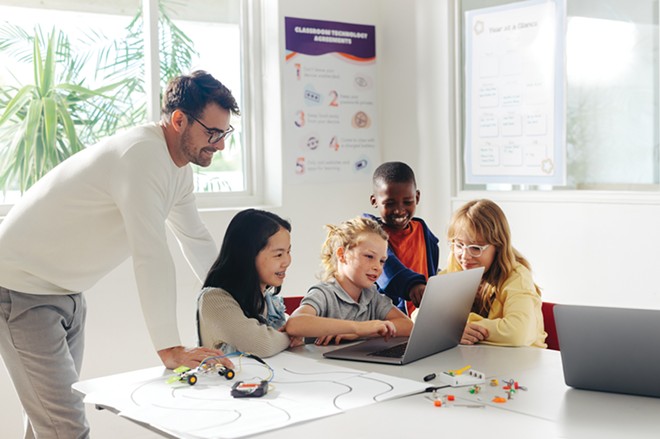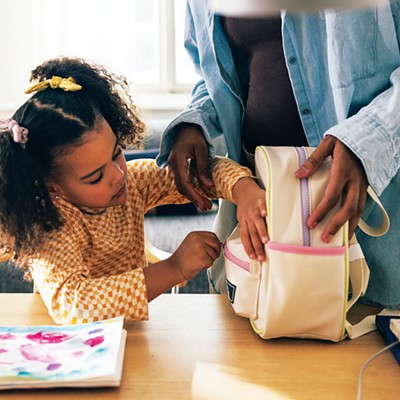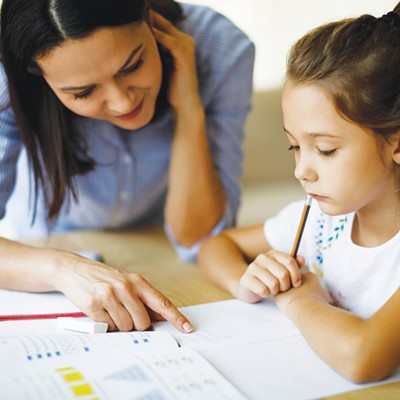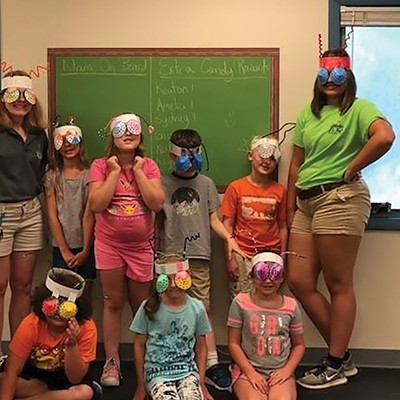Somehow, the back-to-school season is upon us. As we prepare for another year of growing and learning in today's digital age, parents may have some concerns and questions about how to help their children utilize technological tools effectively and appropriately. I sat down with Emily Cherkin, also known as "The Screentime Consultant," to discuss how families can set intentions around screen time for the upcoming school year.
As a former teacher and a mother to two teenage children, Cherkin understands the challenges of parenting in the modern digital age. We all are learning that children's excessive screen use at home and school impacts mental health and family relationships. Cherkin understands that parents have concerns about the amount of time children spend on devices and want to do better.
Safety concerns are one reason many parents opt into tech for their children – trackers and simple phones are a way of letting parents know children are safe. But it is also important for kids to learn from a young age who is safe to ask for help and how to find an appropriate adult if they have a problem. Cherkin deeply understands the drive to protect our children and keep them safe, but she also counters that this sort of surveillance is frankly a little weird, and that it can feed anxiety in both parents and children.
"Going to school on your own is critical for child development," Cherkin said. "The expectation that a kid can call or text their parents to help them solve a problem in the moment takes away that child's autonomy to deal with friction situations on their own."
The flip side of this coin has to do with parents' desires to communicate important information to their children while they are at school. Cherkin recommends that if you do need to get ahold of your child during the school day, use the school's infrastructure to do so, or consider scheduling calls or texts to times that kids are not engaged in educational activities. After all, if the goal with all this tech is to help your child learn to minimize distractions, parents should refrain from distracting their children during the school day.
Another major worry of some parents is when it seems like their kid is the only one in their grade without a phone. No parent wants their child to feel left out. Cherkin agrees that "FOMO is real," but also points out this happens even with a phone. Just because your kid has a phone doesn't mean they won't occasionally still miss out or be left out of a social situation. It is a false assumption to think that your kid is more likely to be included in important social relationships just because they have a phone.
Technology is a part of many kids' school experiences, too. Oftentimes, technology in classrooms is effective and instructive, and it prepares children for life in the modern age. However, according to Jared Cooney Horbath in Psychology Today, 38 minutes of every 60 minutes spent on a laptop during class is spent "off task." Now, will kids sometimes be off task at school? Of course they will. But as parents, it's worth understanding how much educational tech – and what forms of educational tech – our kids are using while they are at school.
If you do have concerns about the quantity, quality or scope of technology-based tools in school, Cherkin has an EdTech Toolkit that you can find on her website at TheScreentimeConsultant.com.
So what is a concerned parent to do? First of all, take a deep breath. Consider whether or not you can answer two key questions about your children's screen use: 1) Do I know what my kid is doing online? and 2) How is my relationship with my children?
The screen time dilemma is going to be an ongoing conversation for families for years to come. I personally found Cherkin's approach relatable, non-judgmental, and incredibly well-researched and thoughtful. If you'd like more guidance, I'd recommend checking out her book, The Screentime Solution: A Judgment-Free Guide to Becoming a Tech-Intentional Family, which was published in January 2024 by Greenleaf Book Group.
Pamela Savage is a freelance writer living in Springfield. Like many parents, she wonders about the impact of all of this screen time.





















